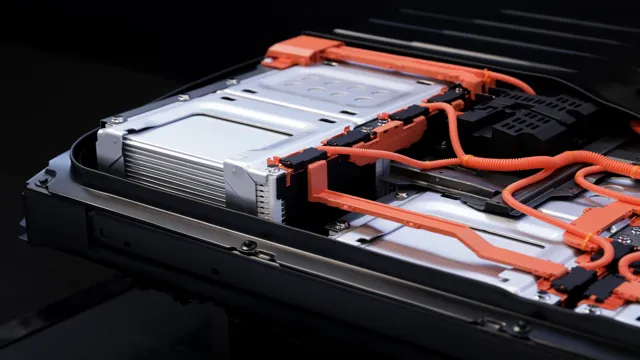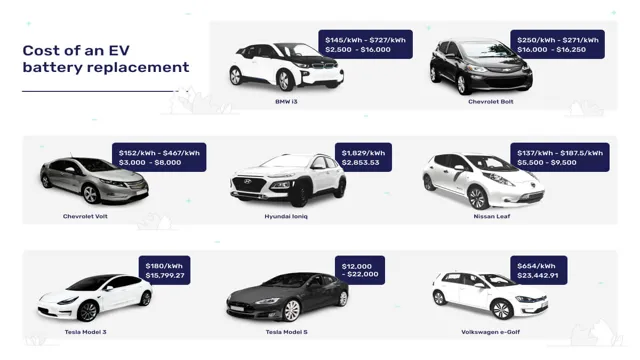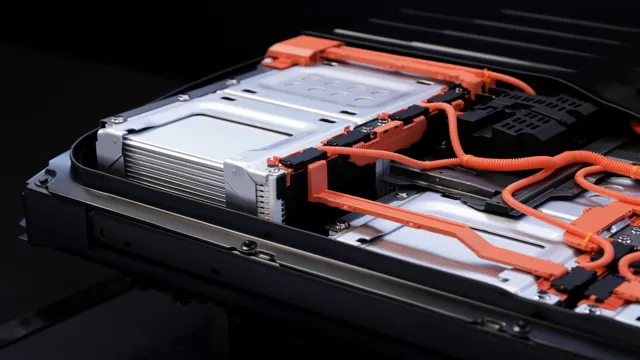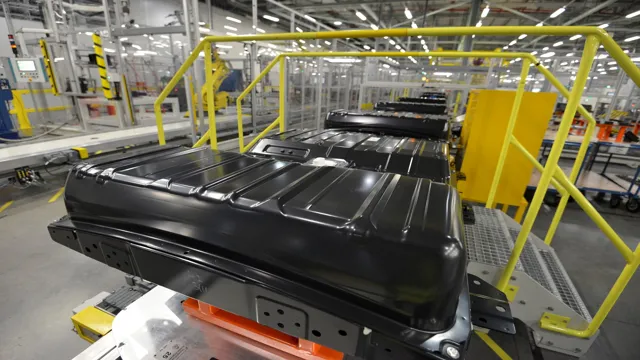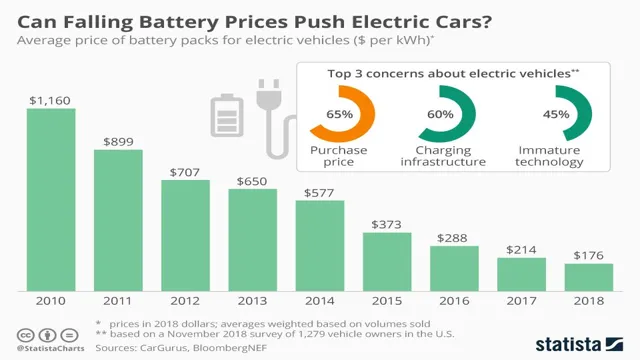Powering the Future: Top Battery Making Companies for Electric Cars
Electric cars have been gaining popularity in recent years, and for good reason. They are environmentally friendly, cost-efficient, and promise a sustainable future. However, all-electric cars need power, and this power comes from batteries.
The battery makers for electric cars play a crucial role in the development and evolution of electric vehicles. But with so many battery makers out there, how do you know which one is the best? In this blog post, we will explore some of the best battery makers for electric cars and delve into the various reasons why they stand out in the market.
Top 3 Companies in the Market
If you’re in the market for electric cars, then you’re probably also interested in the battery making companies behind them. These battery makers play a crucial role in the development and advancement of electric vehicles globally. Three companies that are making a name for themselves are Tesla, LG Chem, and Panasonic.
Tesla has been at the forefront of EV innovation, and their batteries are no exception. LG Chem is one of the largest chemical companies in the world, and their battery division produces high-quality and durable batteries for EVs. Meanwhile, Panasonic has partnered with Tesla in the past to produce batteries for their cars, and they continue to invest in research and development to advance EV technology.
There’s no doubt that these three battery making companies will continue to lead the way in developing better and more efficient batteries for electric cars.
Tesla: Innovator and Leader in EV Battery Technology
When it comes to electric vehicle (EV) battery technology, Tesla undoubtedly stands out as an innovator and leader. The company’s relentless focus on battery efficiency and range has put it at the forefront of the industry. But Tesla is not the only player in the game.
There are other companies that are making their mark in the market as well. A few of the top competitors include LG Chem, Panasonic, and CATL. LG Chem provides batteries for many major automakers, including GM and Hyundai.
Panasonic has been a long-term supplier to Tesla, with a joint venture facility in Nevada that produces batteries for the Model S, Model X, and Model Finally, CATL, a relatively new player in the market, has made significant strides in battery technology and has become a key supplier to companies such as BMW and Daimler. While these companies may not match Tesla’s overall dominance in the EV market, they are making significant strides in battery technology, and their products are helping to improve the overall quality and range of electric vehicles.
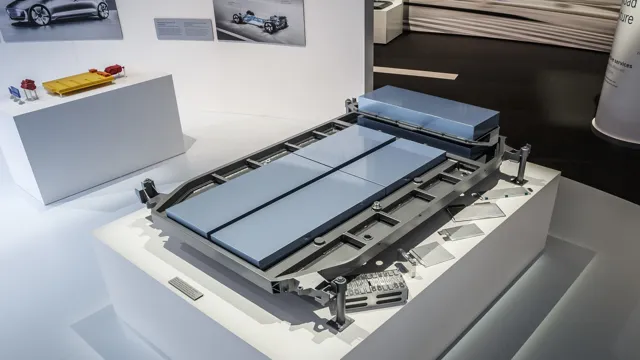
CATL: China’s Leading EV Battery Supplier
When it comes to electric vehicle batteries, Chinese manufacturer Contemporary Amperex Technology Co. Limited (CATL) is leading the way. In fact, it’s one of the top three battery suppliers in the world, along with Panasonic and Tesla.
Not only is CATL a major player in the EV market, but it’s also making strides in stationary energy storage systems for homes and businesses. With high-tech manufacturing facilities and a commitment to innovation, CATL is on track to continue dominating the industry. As demand for electric vehicles continues to grow, CATL is well-positioned to meet that demand and continue driving the industry forward.
LG Chem: A Global Player in EV Battery Manufacturing
LG Chem has established itself as a global leader in the EV battery manufacturing market, offering its customers high-quality batteries with cutting-edge technology. With its headquarters in South Korea, LG Chem is actively expanding its operations worldwide, providing batteries to major car manufacturers, including GM, Hyundai, and Audi. The company has also made a significant investment in R&D, which has resulted in the development of advanced batteries with higher energy density and longer lifespan.
Overall, LG Chem has cemented its position as one of the top three companies in the EV battery market, alongside Panasonic and CATL. Its commitment to innovation and enhancing the customer experience has made it a preferred choice for EV manufacturers and consumers alike.
Emerging Players to Keep an Eye On
As electric cars continue to gain popularity, the demand for high-quality batteries is only going to increase. While the market is currently dominated by well-established companies like Tesla, there are a number of emerging players that are worth keeping an eye on. Startups like QuantumScape, which is backed by Volkswagen and Bill Gates, are looking to revolutionize battery technology with their solid-state lithium-metal batteries.
Another company that’s garnering a lot of attention is Solid Power, whose solid-state electrolyte batteries could offer higher energy density and safety than current battery options. And let’s not forget Alevo, which is working on a lithium-ion battery that promises to last up to 40 years, thanks to its proprietary electrode. While it remains to be seen which companies will ultimately come out on top, it’s clear that the competition in the battery-making industry for electric cars is heating up, and we can expect to see some exciting developments in the years ahead.
BYD: Chinese EV Company with Ambitious Battery Plans
BYD, the Chinese EV company, has recently garnered attention due to their ambitious battery plans. With the growing demand for electric vehicles worldwide, BYD has set a goal of becoming the world’s largest EV battery manufacturer in the next few years. They plan to achieve this by investing heavily in the development of solid-state batteries, which are expected to offer higher energy density and safety compared to traditional lithium-ion batteries.
BYD has already announced plans to build multiple battery factories in China and Europe to meet the growing demand for their batteries. As an emerging player in the EV industry, BYD is definitely a company to keep an eye on in the coming years. With their focus on innovation and expansion, it will be interesting to see how they fare against established competitors in the market.
Panasonic: A Long-time Partner of Tesla with Big Plans for EV Batteries
Panasonic has been a long-time partner of Tesla, supplying them with batteries for their electric vehicles. However, Panasonic has big plans of their own in the EV market. In fact, they are aiming to become the world’s largest EV battery maker by 202
To achieve this goal, they are investing heavily in research and development, as well as expanding their production capacity. Their new battery plant in Nevada, which began production in 2020, is anticipated to be the largest EV battery factory in the world. Panasonic is also developing solid-state batteries, which offer higher energy density and are safer than traditional lithium-ion batteries.
With their expertise and strong partnership with Tesla, Panasonic is definitely an emerging player to keep an eye on in the EV industry.
Samsung SDI: Diversifying its Battery Business into EVs
Samsung SDI, a leading producer of batteries, is making a significant push into the EV market. Over the past few years, the company has been developing and producing batteries for electric vehicles from various automakers, such as BMW, Volkswagen, and Audi. However, Samsung SDI plans to expand its EV battery business by developing its own EV battery modules and packs.
With a long history of manufacturing high-performance batteries, the company is poised to shake up the EV market. Samsung SDI is an emerging player that EV enthusiasts should keep on their radar due to its expertise and resources in battery technology. As sustainable transportation continues to be a top priority, it is exciting to see companies with such capabilities and resources enter the EV market, as they have the potential to improve the performance, range, and safety of electric vehicles.
With Samsung’s battery business expanding into the EV realm, it will be fascinating to see what the company can bring to the table and how it will shape the future of EVs.
Factors to Consider When Choosing a Battery Maker
When deciding on a battery making company for electric cars, there are several factors one should consider. Firstly, it’s important to evaluate the company’s experience and expertise in the field. A company that has been in the industry for a significant amount of time and has a strong track record of producing high-quality batteries is more likely to provide reliable and trustworthy products.
Secondly, the technology used in the battery-making process is also critical. Companies that use advanced and innovative technologies are more likely to produce batteries that offer better performance, longer lifespan, and increased efficiency. Finally, the cost of the batteries is an important consideration.
While it’s essential to prioritize quality over price, choosing a company with competitive pricing ensures that you get the best value for your money. So when looking for battery making companies for electric cars, take these factors into account and choose the one that meets your criteria in terms of quality, technology, and affordability.
Cost and Pricing Structures
When it comes to choosing a battery maker, the cost and pricing structure is an important factor to consider. You want to make sure that you are getting the most value for your money and that the batteries are priced fairly. Some battery makers may have a lower upfront cost, but may end up costing you more in the long run due to their lower quality and shorter lifespan.
On the other hand, some may have a higher upfront cost, but will last longer and provide better performance, ultimately saving you money in the long run. Additionally, it’s important to consider any additional costs such as shipping and installation fees. Make sure to compare the prices and warranties of different battery makers before making a decision.
Overall, balancing cost with quality is key when choosing a battery maker that meets your needs and budget.
Battery Performance and Range
When it comes to electric vehicles, battery performance and range are two crucial factors that can make or break the deal. Choosing a reliable battery maker is therefore of utmost importance. But what factors should you consider when making this decision? Firstly, the type and composition of the battery itself, as well as its capacity and output voltage, can significantly impact its range and performance.
Secondly, the quality of the battery management system (BMS) can have a huge impact on the battery’s efficiency, longevity, and safety. Other important factors include the warranty provided, the manufacturer’s track record, and the availability of charging options and infrastructure. Ultimately, choosing a battery maker that takes all of these factors into consideration, and whose products meet your specific needs and usage patterns, is essential for achieving the optimal performance and longevity of your electric vehicle.
Durability and Warranty
When choosing a battery maker, it’s crucial to consider durability and warranty. You want a battery that will last and not let you down, and getting a warranty to back it up is essential. You don’t want to end up with a dead battery within a few months with no support or replacement options.
That’s why it’s important to research the durability of the battery and the warranty offered by the manufacturer. Look for a battery maker that provides a warranty that is long enough to cover the battery’s expected lifespan. A reliable battery maker should also be transparent about the testing methods used to ensure their batteries’ endurance.
Opt for a provider who offers durability tests, so you can be confident that the battery can withstand the surrounding conditions. With that, you can ensure that your batteries will last long and work well, and that you get the support you need in case of any issues.
Final Thoughts
When it comes to electric cars, the battery is one of the most crucial components. The demand for electric vehicles has led to a rise in battery making companies, each trying to produce the best and most efficient batteries for electric cars. Companies such as Tesla, LG Chem, and Panasonic are just a few of the leading names in the industry.
With advanced technology and increased production capacity, battery making companies are continuously improving the performance and durability of their products. As the industry continues to grow, we can expect more companies to enter the market, leading to further innovation and improved sustainability in the automotive industry. Overall, the emergence of these battery making companies is an exciting development for the future of electric vehicles.
Conclusion
In the world of electric vehicles, battery making companies are the unsung heroes. Without them, our cars would be nothing more than oversized paperweights. Not only do these companies have the responsibility of creating powerful and efficient batteries, but they also have to consider the environmental impact of their production processes.
It’s a delicate balancing act, but one that these companies have mastered. So, next time you plug in your electric car, take a moment to thank the battery making companies who made it all possible. Without them, we’d still be stuck at the gas pump.
“
FAQs
What are some battery making companies for electric cars?
There are several companies that make batteries for electric cars, including Tesla, Panasonic, LG Chem, Samsung SDI, and CATL.
Which company is the largest supplier of batteries for electric vehicles?
As of 2021, Panasonic is the largest supplier of batteries for electric vehicles, particularly for Tesla.
What advancements have been made in battery technology for electric cars?
Advances in battery technology for electric cars include increased energy density, longer battery life, and faster charging times.
How does the production of batteries for electric cars impact the environment?
The production of batteries for electric cars requires the extraction of raw materials and energy-intensive manufacturing processes, but they ultimately have a lower environmental impact compared to traditional gasoline-powered cars when accounting for their lifetime emissions.
